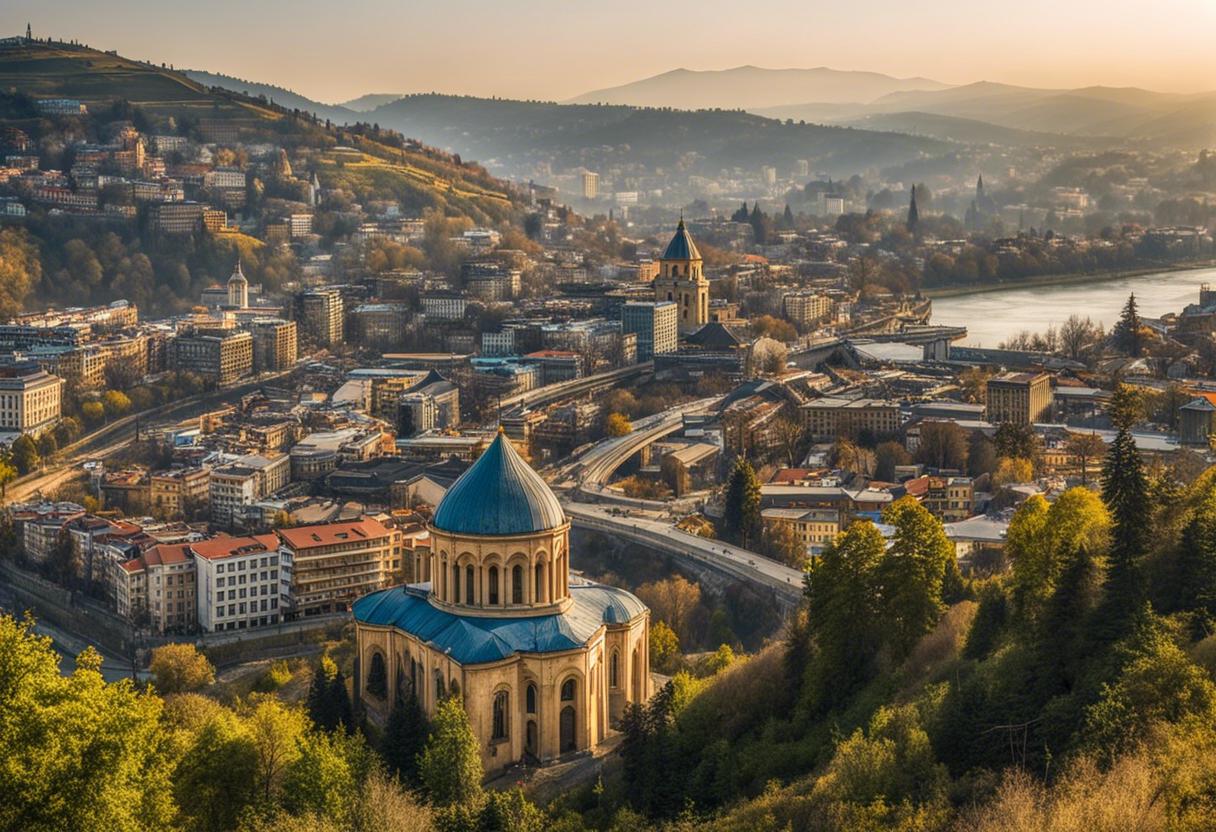The President of Georgia, Salome Zourabichvili, has vetoed a legislation tagged “Russian Law”, aimed at media outlets which has incited widespread demonstrations across the nation for weeks. This so-called “foreign agents” legislation would necessitate media and non-governmental organisations (NGOs) to self-identify as “pushing for foreign interests” if they acquire over a fifth of their funding from overseas. This legislation has been compared to laws that were utilised by the Kremlin to quiet dissent and it is feared that it will stymie Georgia’s aspiration to become part of the European Union.
Zourabichvili, who increasingly finds herself clashing with the dominant party in Georgia, asserted on Saturday that such a law is a contradiction to Georgia’s constitution as well as “all standards of Europe”, calling for its repeal. Nevertheless, it is expected that the majority-held Georgian Dream party will override this veto in the forthcoming days.
The Georgian government stands firm, stating that this law aims to provide more transparency and diminish potentially damaging foreign sway in the nation, which has a population of 3.7 million. However, many Georgian journalists and activists contest this claim, arguing they already comply with auditing and monitoring requirements. They believe the actual intention of the law is to label them negatively and limit democratic discussion before the upcoming parliamentary elections scheduled for October.
Georgia was given candidate status by the EU in the last December, contingent on Tbilisi meeting crucial policy recommendations for its membership application to advance. These recommendations pertain not only to maintaining free and fair elections but also to combating disinformation attacks “against the EU and its principles”, and ensuring autonomy of public bodies such as the central bank and anti-corruption institutions.
The opposition party, United National Movement along with a multitude of protesters, accuse the ruling party Georgian Dream of attempting to sabotage the EU integration process and opt for bringing Georgia under Russia’s influence – a claim the ruling party strongly refutes. The founder of Georgian Dream is Bidzina Ivanishvili, a billionaire and former prime minister, who amassed his wealth in Russia. This bill has striking resemblance to a previous one which the party was coerced to retract after widespread public protests last year.
Georgia has been engulfed by continuous protests for several weeks, marked by confrontations between the public and law enforcement. Police have employed tear gas and water cannons in an attempt to control the crowd. Earlier this month, an opposition figure addressed parliament with noticeable injuries on his face, including wraps, bruises, and scrapes. Colleagues of the politician alleged that these injuries were the result of police brutality during the protests.
Concerns regarding the law and Tbilisi’s harsh approach towards opposition have been raised repeatedly by leaders from the West and officials of the EU. A wave of violence against opposition politicians, activists, their family members, and journalists, was condemned by EU’s chief diplomat, Josep Borrell. He publicly voiced his support for the protesters in Georgia in a statement released on Wednesday.
The president of the European Council, Charles Michel, averred on Tuesday that in order for Georgia to become part of the EU, it must hold in high regard the fundamental principles of democracy and law and order.
On the other hand, Ms Zourabichvili mentioned on Thursday that it is complex to ascertain whether the controversial bill was initiated by Georgian Dream, or if Moscow had a hand in its enactment. She underscored, however, Moscow’s clear displeasure with Georgia’s leanings towards the West. Still, the nature of Russia-Georgia relations has been fraught and unstable since Georgia left the Soviet Union in 1991.
The fracture in the ties came to a head in 2008, when Georgia unsuccessfully tried to reclaim South Ossetia, leading to a brief war with Russia. Moscow proceeded to acknowledge South Ossetia and another breakaway region, Abkhazia, as sovereign states and increased their military presence in these regions. Despite the world at large acknowledging these regions as parts of Georgia, Tbilisi severed diplomatic relations with Moscow, and the disputed status of the regions continues to be a key point of contention even as the relationship between Russia and Georgia has seen improvements in recent years.

